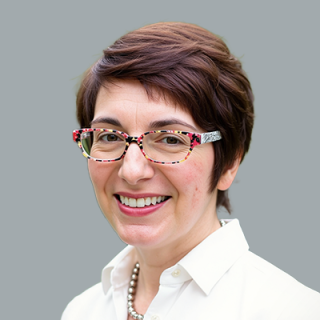Blog
SPAC Risk Update with Doug Ellenoff: What to Expect in 2025
The second half of 2024 saw a significant uptick in SPAC activity both on the IPO and deal side. With the new Trump administration and several SPAC-friendly appointments, many anticipate continued positive momentum for the SPAC universe in 2025, but a few risks and uncertainties remain. To gain some perspective on what may be ahead, I spoke with Doug Ellenoff, founder of the top law firm in the SPAC market, Ellenoff Grossman & Schole. Doug has been at the forefront of the SPAC market since its inception and is widely regarded as the leading mind in the SPAC world.
Our conversation, which you can watch below, is our fourth annual update for the SPAC Notebook. This blog post highlights a few interesting parts of that conversation, edited for clarity. For the full discussion, see the video.
How Did SPAC Market Do in 2024?
Yelena Dunaevsky: We definitely saw an uptick in the number of deals in the second half of 2024 after an incredibly quiet couple of years. How do you think the SPAC market did in 2024?
Doug Ellenoff: The SPAC market continued to plug along in 2024, but it was still a very difficult struggle for business combinations. The market got better, but it didn't get easy. I think some of the trading results are better. Not uniformly, for sure. There were many de-SPAC transactions that limped over that finish line. But on the whole, if you segmented out the first half of 2024 versus the second half, I think you have a higher level of fundraising in the second half, which just tells you that risk-taking and financing are more available for de-SPAC transactions.
Are There New SPAC Structures or Approaches in the Market?
Yelena Dunaevsky: The SPAC market is a fascinating space, and the players are incredibly innovative. There have been a lot of bumps in the road, but it's rewarding when we can solve the problems that keep popping up. This includes problems with deal structures, regulatory issues, and risk/insurance issues. Did you note any interesting changes in the SPAC structure or approaches in 2024?
Doug Ellenoff: Structurally, institutional investors that have supported the SPAC market for several years were, in 2024, looking to reinvigorate the market. And they have offered a better structure to those SPAC sponsors that have proven themselves to be successful over the last several years. Cantor Fitzgerald led the charge on a very enlightened approach centered around the idea that those institutional investors would not only agree to put up the funds for the IPO capital, but would participate in the risk capital contribution.
Prior to 2024, to launch a new SPAC, a SPAC sponsor typically put up all or most of the money on their own, or with friends and colleagues, in exchange for the typical 20% that we have observed in the SPAC market for almost 25 years. What happens in this new approach is the syndicate takes, in broad strokes, say 50% of the economics of the SPAC sponsor in exchange for putting up roughly two-thirds or more of the capital necessary to fund SPAC operations until the closing of the business combination.
Yelena Dunaevsky: That’s certainly a new approach I am seeing on most of the SPACs in the current market. And there have been some innovations in the D&O insurance space for SPACs as well. The combination policy that I spoke about last year is now fully the market standard. And I wouldn’t call this an innovation, more of a market shift, but some new insurance carriers are coming into the market and offering options for SPAC IPOs and de-SPACs.
They do view these syndicated structures in a positive light but very much want to understand the mechanics and economics behind them. Each carrier has different theories of where risk lies and where it will continue to come from. Many have gotten burned by multiple lawsuits and very large claims —which they paid.
Some insurers are only interested in policies for SPAC IPOs and some are only interested in de-SPACs, while others are willing to look at both as long as they understand the details of how the parties aim to structure their coverage.
What’s Ahead for the SEC and Its SPAC Rules?
Yelena Dunaevsky: The current chair of the Securities & Exchange Commission (SEC), Gary Gensler, will resign come January 20th. We all know he was not a proponent of SPACs, to say the least. Now that he’ll be out, and Trump has appointed Paul Atkins to replace Gensler, are you foreseeing a much brighter future for SPACs? And what about the SPAC rules—do you think those will be amended or repealed?
Doug Ellenoff: A lot of the pain over the last few years was self-inflicted. There were too many SPACs and too few quality deals. But the changing of leadership at the SEC is a very good thing for the SPAC market because the prior administration has been too activist and too far outside the boundaries of regulatory acceptable behavior. This has been demonstrated in federal courts and elsewhere.
I would like to see the SPAC rules completely reversed. The implementation of the rules did not really accomplish anything of any consequence and was a result of activist regulatory action that was taken for no legitimate reason. There are many subtleties to other securities rules that individuals at the SEC have been discriminatorily applying to SPACs for many years—not just this past administration. And I would like to see the new SEC chair say no, we're not going to look at SPACs as a pejorative term anymore, we are not going to disadvantage them the way this last administration and others have done.
I worry that the new SEC chair, having been a commissioner and being part of the SEC alumni, may not be as activist as I would like in reversing a lot of the negatives, but he is a very credentialed securities lawyer and I'm sure will do a very good job. There will be a letter from my office with our proposals on his desk, not just for SPACs, but for public companies generally. I hope it has some influence on his future direction.
Are Other Trump Appointments Favorable to SPACs?
Yelena Dunaevsky: Speaking of regulators and the change of the guard, is Trump's nomination of Cantor Fitzgerald’s CEO Howard Lutnick to head the Department of Commerce a positive development for SPACs?
Doug Ellenoff: In full disclosure, our firm has a history of representing Cantor Fitzgerald on most of their SPAC programs. My comments have nothing to do with the specifics of having that privilege, but my general observation is that Howard Lutnick can only be good for the entire SPAC market and other capital formation activities. He understands what it takes to help fund entrepreneurial activity.
Recent Notable SPAC Cases
Yelena Dunaevsky: I agree with you. I think the picks for this administration will be more positive towards SPACs. On a related topic, I'm about to publish our annual SPAC risk report, which will be available on the SPAC Notebook in mid-January. There'll be a lot more information there on what we're seeing in litigation, enforcement, and settlements. As a quick preview, there have been a couple of SPAC-favorable decisions out of Delaware in 2024, most notably, the Hennessy/Canoo decision in which the Delaware Chancery Court dismissed an action asserting claims of breach of fiduciary duty, a reversal from a number of previous Multiplan-like decisions. What are your thoughts on this shift?
Doug Ellenoff: The last six months have been good for SPACs in terms of favorable decisions. It might be due to many SPACs taking note of the Delaware environment and going to Cayman—and Delaware beginning to miss those franchise fees. However, just because you incorporate in Cayman does not mean you will not find yourself back in front of Delaware or other courts. There are a lot of factors that go into figuring out where future litigation will take place.
I think even if you go to Cayman, you must take note of all the Delaware decisions to make sure you're implementing good corporate governance to avoid all those issues.
Will We See More Crypto SPACs in 2025?
Yelena Dunaevsky: Shifting to new horizons, do you think we will see more crypto SPACs?
Doug Ellenoff: We will see a lot of activity in crypto-related de-SPAC transactions. The last administration really bungled how to regulate crypto. And it's not because I think it should be unregulated. I'm in the camp that you must create a pathway toward compliance that is consistent with how that industry works.
Yelena Dunaevsky: Insurers, unfortunately are not keen on crypto. Crypto is still very much a four-letter word in the insurance world. So that's going to be an uphill battle.
We will get there when we get there.
Doug Ellenoff: But let’s make a distinction—it's okay for insurance companies on a commercial basis to say they don't want to underwrite it or they're uncomfortable with it, but it’s not okay for regulators like the SEC to refuse to put a workable regulatory framework in place to allow these companies to operate.
Crystal Balling 2025
Yelena Dunaevsky: If new tariffs are imposed, that seems like another bump in the SPAC road. SPAC Insider reported that foreign-based targets represented about 50% of deals announced since the start of 2024.
Doug Ellenoff: The great thing about the SPAC market is that you can look at the barriers in front of you and just go in a different direction to avoid them. Just like we went from incorporating in Delaware to incorporating in Cayman. Maybe we will end up in Texas, which is what everybody would like to see. When things were bad in China, we ended up doing a lot of Pan-Asian deals.
Yelena Dunaevsky: I've heard predictions of 80 to 85 new IPOs in the next year. We're at 55 now, near the end of 2024. Are those predictions high?
Doug Ellenoff: We have put in the foundation for an acceleration of growth, but hopefully we won’t go back to where we were in 2021. More underwriters are looking to do business. More sponsors are finding an interesting way to do so. Most importantly, more target companies want to come to the public markets in the United States, particularly if we can find fundamental capital for them.
I think the new administration, whether you agree with their politics or not, is going to be very pro-business. I'd love to see 75 to 100 new SPAC IPOs every year for the next decade.
Yelena Dunaevsky: The other important element on the mergers & acquisitions side is that valuations have reached a more reasonable point. This means that SPAC business combinations are likely to be executed on more reasonable terms and are likely to be more successful after the merger.
I predict we'll continue to have a favorable insurance market up until we start hitting the IPO upswing. At that point, insurance pricing will go up. However, I anticipate the current level of pricing to continue through 2025 and maybe into 2026.
Doug Ellenoff: That outlook translates into sponsors having to put up much less at-risk capital. If they can save $750,000 on D&O insurance, that's a great development.
Everybody who wanted to see the SPAC market die doesn't understand why it's surviving. It's because we don't have enough ways to get private companies into the public markets.
I'd like to see a conversation on how regulators can make this all more efficient and better.
SPACs have been picked on for 20 years and it’s time to change that. I think we can set ourselves up for a very good next four years, hopefully make up for some of the negativity that we brought on ourselves during 2021 and 2022 and really prove out this SPAC business model.
Author
Table of Contents









